
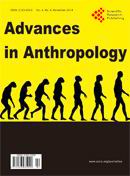 Advances in Anthropology人类研究进展
Advances in Anthropology人类研究进展
Aims & Scope
Advances in Anthropology (AA) is an international peer reviewed journal dedicated to reporting on the latest advances in anthropology and related disciplines. The goal of this journal is to provide a platform for scientists and academicians worldwide to promote, share, and discuss various new issues and perspectives in diverse areas of anthropology and to keep a record of the newest methodological and theoretical developments in the discipline.
Historical Anthropology: compound umbrella term (history from Greek iστορiα, historia, for inquiry, knowledge gained through investigation; and anthropology from Greek anthrōpos (ανθρωποc), for human being, meaning humankind/humanity, and -λογια, -logia, for study). Here understood as modern definition of Science of History based on a comprehensive concept of culture, going back not only to earliest forms of writing (written history), including prehistory for sources and events prior to written records, and using inter/trans disciplinary testable, repeatable, observable, and falsifiable methods of various academic disciplines with the general aim to explain how the study of the past specifically relates to humans.
All submitted manuscripts should not have been previously published nor be currently under consideration for publication elsewhere or at any time during AA's review period. Manuscripts must be prepared in English and will be subject to a rigorous and fair peer‐ eview process. Generally, accepted papers will appear online within 3 weeks followed by printed hard copy. The journal publishes original papers including, but not limited to, the following subfields of anthropology:
We are also interested in: 1) Short Reports - 2 to 5 page papers that report on preliminary research results; 2) Book Reviews - comments and critiques on recently published books on relevant topics; 3) Letters to the Editor - responses to previously published articles; 4) Conference Proceedings - please contact the Editor-in-Chief with a 2 page proposal.
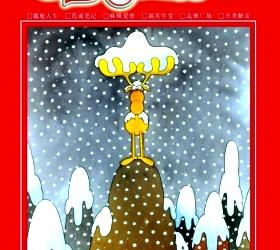 《喜剧世界》省级,旬刊,知网收录
《喜剧世界》省级,旬刊,知网收录 《视界观》省级,半月刊,知网收录
《视界观》省级,半月刊,知网收录 喜迎双旦,特价征稿,直击底价,后惠无期。
喜迎双旦,特价征稿,直击底价,后惠无期。 《报刊荟萃》省级 月刊 上知网
《报刊荟萃》省级 月刊 上知网 世界凝聚态物理杂志World Journal of Co...
世界凝聚态物理杂志World Journal of Co...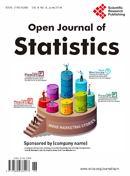 统计学报Open Journal of Statistics
统计学报Open Journal of Statistics 放射学杂志Open Journal of Radiology
放射学杂志Open Journal of Radiology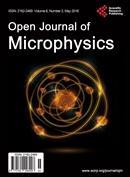 微观物理学杂志/粒子物理学报Open Journ...
微观物理学杂志/粒子物理学报Open Journ...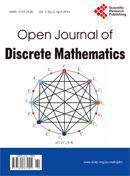 离散数学杂志Open Journal of Discrete ...
离散数学杂志Open Journal of Discrete ... 生物物理学报Open Journal of Biophysics
生物物理学报Open Journal of Biophysics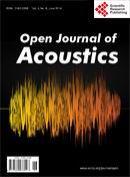 声学学报Open Journal of Acoustics
声学学报Open Journal of Acoustics 现代物理学杂志Journal of Modern Physics
现代物理学杂志Journal of Modern Physics